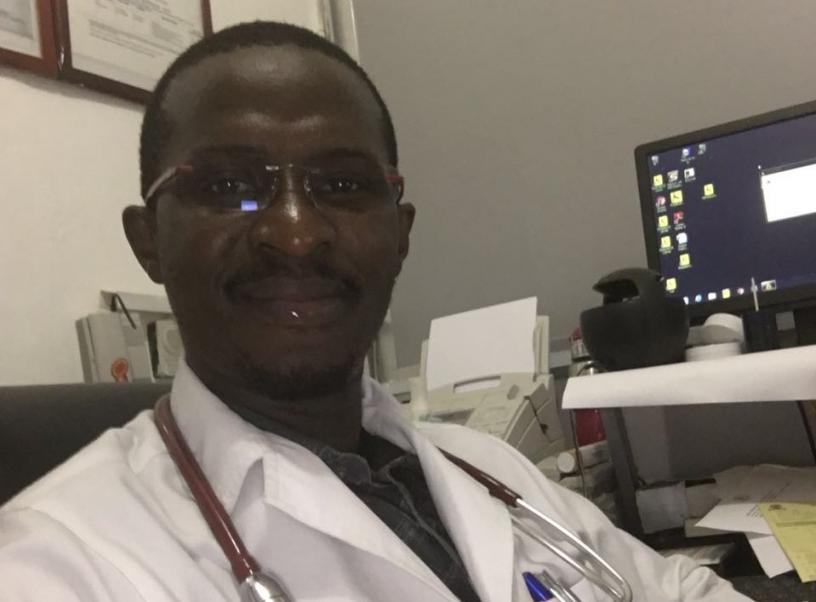Interview with Dr. Harun Elmada Nyagori

Tell us a bit about yourself
My name is Dr. Harun Elmada Nyagori, I am a Consultant Physician-Cardiologist at the Morogoro Regional Referral Hospital in Morogoro, a city in Eastern Tanzania. I am also a lecturer in the Department of Internal Medicine at St. Francis University College of Health and Allied Sciences (SFUCHAS), also in Morogoro.
When did you first encounter rheumatic heart disease?
My twin sister died at the age of 10 years from rheumatic heart disease. Medical services to treat her were inadequate: there were few doctors in the local area and hospitals were impossibly far away, especially for a family of limited means.
I was motivated to become a doctor because of this, and also because, as a child, I had a very bad open fracture of my right leg after a fall from a mango tree which resulted in multiple referrals and surgeries. I was in hospital for 7 months; this caused much hardship for my family.
How many patients do you see with rheumatic heart disease?
I hold two cardiology clinics weekly, an echo clinic once per week and additionally do rounds for cardiology patients at the hospital. About 40% of my patients are aged between 0-26 years, and they most frequently present with congenital heart disease, myocarditis, valve complications due to rheumatic heart disease, and heart failure.
I follow about 25 RHD patients on a regular basis. I see around 12-16 new RHD patients per month at my cardiology clinics; about 80% of them are referrals from the remote rural districts of Kilosa, Ifakara and Mayombo.
What are your biggest concerns regarding rheumatic heart disease?
Public health care remains a logistical and financial challenge for the average Tanzanian and many patients go untreated. It troubles me that so many patients with RHD have already developed heart complications or even end-stage heart failure before I see them for the first time.
These patients are usually referred to the Muhimbili National Hospital. However around 95% of them cannot afford the procedure, so they return untreated to their homes in rural areas. It saddens me to hear news of children dying from complications due to RHD so frequently.
The lack of awareness about RHD among both physicians and patients is a huge concern. So many of these patients come to the hospital with advanced disease due to unrecognised RHD. Local communities and healthcare providers currently have a very poor understanding of what RHD is, how you get it, and how you can treat it.
What are your hopes for rheumatic heart disease prevention & control in Tanzania in the future?
My first priority is to set up a mobile clinic system to provide diagnostic and follow up medical care to patients in the districts around Morogoro, and to promote awareness of RHD in both communities and among healthcare providers. I would also like to organize a support team to help create strategies and sustainable programmes for education and training which focus on echo tools and secondary prophylaxis.
I aim to encourage cardiologists in Tanzania to work with village communities, which can have a big impact. By tackling the problem of RHD at the root, we can help to avoid late referral and therefore reduce premature deaths from late-stage complications such as heart failure, thrombus or endocarditis.
There are increasing opportunities for collaboration in Tanzania - I am a member of the newly formed Tanzania Cardiac Society. However I also look forward to working with the international RHD community to share resources, technical advice and to brain storm new ideas to help create new RHD control programmes in Morogoro.
You can also read a case study of Tanzania in the RHD Action RHD Global Status Report 2015-17





